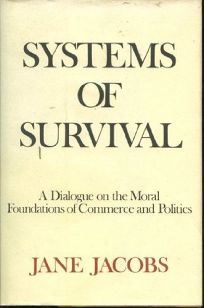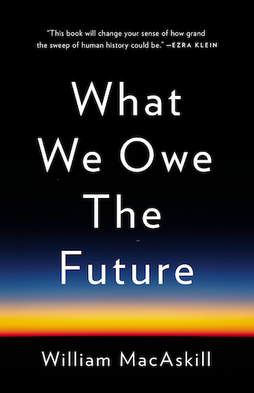The technological singularity—or simply the singularity—is a hypothetical future point in time at which technological growth becomes uncontrollable and irreversible, resulting in unforeseeable consequences for human civilization. According to the most popular version of the singularity hypothesis, I. J. Good's intelligence explosion model, an upgradable intelligent agent will eventually enter a "runaway reaction" of self-improvement cycles, each new and more intelligent generation appearing more and more rapidly, causing an "explosion" in intelligence and resulting in a powerful superintelligence that qualitatively far surpasses all human intelligence.
Media ecology theory is the study of media, technology, and communication and how they affect human environments. The theoretical concepts were proposed by Marshall McLuhan in 1964, while the term media ecology was first formally introduced by Neil Postman in 1968.

Technological utopianism is any ideology based on the premise that advances in science and technology could and should bring about a utopia, or at least help to fulfill one or another utopian ideal.

Understanding Media: The Extensions of Man is a 1964 book by Marshall McLuhan, in which the author proposes that the media, not the content that they carry, should be the focus of study. He suggests that the medium affects the society in which it plays a role mainly by the characteristics of the medium rather than the content. The book is considered a pioneering study in media theory.

Systems of Survival: A Dialogue on the Moral Foundations of Commerce and Politics is a 1992 book written by American urban activist Jane Jacobs.

A technological fix, technical fix, technological shortcut or (techno-)solutionism refers to attempts to use engineering or technology to solve a problem.

The Clean Tech Revolution: The Next Big Growth and Investment Opportunity is a 2007 book by Ron Pernick and Clint Wilder, who say that commercializing clean technologies is a profitable enterprise that is moving steadily into mainstream business. As the world economy faces challenges from energy price spikes, resource shortages, global environmental problems, and security threats, clean technologies are seen to be the next engine of economic growth.

Is Google Making Us Stupid? What the Internet Is Doing to Our Brains! is a magazine article by technology writer Nicholas G. Carr, and is highly critical of the Internet's effect on cognition. It was published in the July/August 2008 edition of The Atlantic magazine as a six-page cover story. Carr's main argument is that the Internet might have detrimental effects on cognition that diminish the capacity for concentration and contemplation. Despite the title, the article is not specifically targeted at Google, but more at the cognitive impact of the Internet and World Wide Web. Carr expanded his argument in The Shallows: What the Internet Is Doing to Our Brains, a book published by W. W. Norton in June 2010.

Karan Bajaj is an Indian technology entrepreneur and author. He is best known as founder and CEO of WhiteHat Jr., an Edtech company specializing in distance learning which was acquired by BYJU'S in 2020.

Physics of the Future: How Science Will Shape Human Destiny and Our Daily Lives by the Year 2100 is a 2011 book by theoretical physicist Michio Kaku, author of Hyperspace and Physics of the Impossible. In it Kaku speculates about possible future technological development over the next 100 years. He interviews notable scientists about their fields of research and lays out his vision of coming developments in medicine, computing, artificial intelligence, nanotechnology, and energy production. The book was on the New York Times Bestseller List for five weeks.
Technological determinism is a reductionist theory that assumes that a society's technology progresses by following its own internal logic of efficiency, while determining the development of the social structure and cultural values. The term is believed to have originated from Thorstein Veblen (1857–1929), an American sociologist and economist. The most radical technological determinist in the United States in the 20th century was most likely Clarence Ayres who was a follower of Thorstein Veblen and John Dewey. William Ogburn was also known for his radical technological determinism and his theory on cultural lag.

C. A. (Chet) Bowers was an American educator, author, lecturer and environmental activist. He wrote 27 books that focus on the cultural, linguistic, and technological roots of the current ecological crisis as well as the educational reforms necessary to promote greater ecological awareness.

Jamais Cascio is a San Francisco Bay Area–based author and futurist.

We Should All Be Feminists is a book-length essay by the Nigerian author Chimamanda Ngozi Adichie. First published in 2014 by Fourth Estate, it talks about the definition of feminism for the 21st century.

On 13 February 2008, the Parliament of Australia issued a formal apology to Indigenous Australians for forced removals of Australian Indigenous children from their families by Australian federal and state government agencies. The apology was delivered by Prime Minister Kevin Rudd, and is also referred to as the National Apology, or simply The Apology.

The War on Normal People: The Truth About America's Disappearing Jobs and Why Universal Basic Income Is Our Future is a 2018 book written by Andrew Yang, an American entrepreneur and Venture for America founder, who would later run as a 2020 Democratic presidential candidate on policy strategies discussed in the book. It was published by Hachette Books in the United States on April 3, 2018. A paperback edition was released on April 2, 2019. Yang narrated an audiobook version released on YouTube in September 2018.

The Dawn of Everything: A New History of Humanity is a 2021 book by anthropologist and activist David Graeber, and archaeologist David Wengrow. It was first published in the United Kingdom on 19 October 2021 by Allen Lane.

Night Beast and Other Stories is a collection of science fiction and magical realist short stories written by Ruth Joffre and published in 2018.

What We Owe the Future is a 2022 book by the Scottish philosopher and ethicist William MacAskill, an associate professor in philosophy at the University of Oxford. It advocates for effective altruism and the philosophy of longtermism, which MacAskill defines as "the idea that positively influencing the long-term future is a key moral priority of our time."

The Art of Choosing: The Decisions We Make Everyday – What They Say About Us and How We Can Improve Them is a non-fiction book written by Sheena Iyengar, a professor at Columbia Business School known for her research in the field of choice. The book was first published by the imprint Twelve Books of Hachette Book Group in March 2010.

















